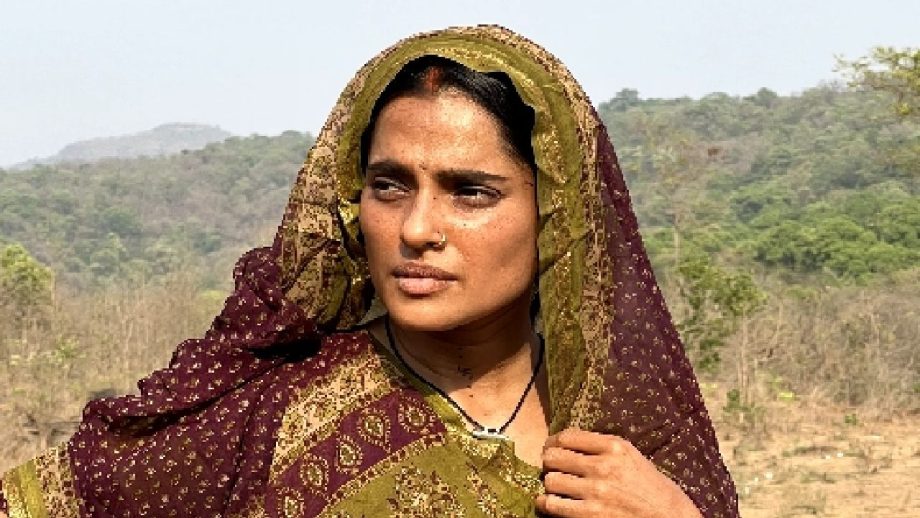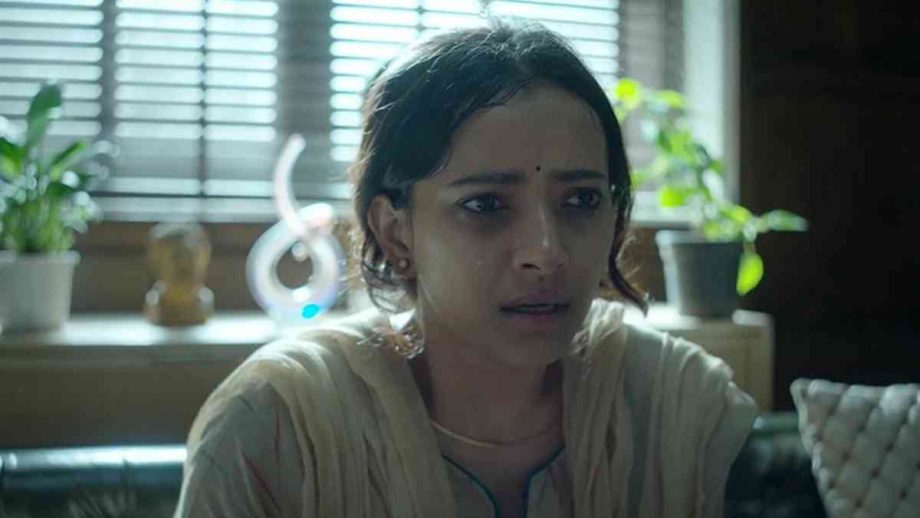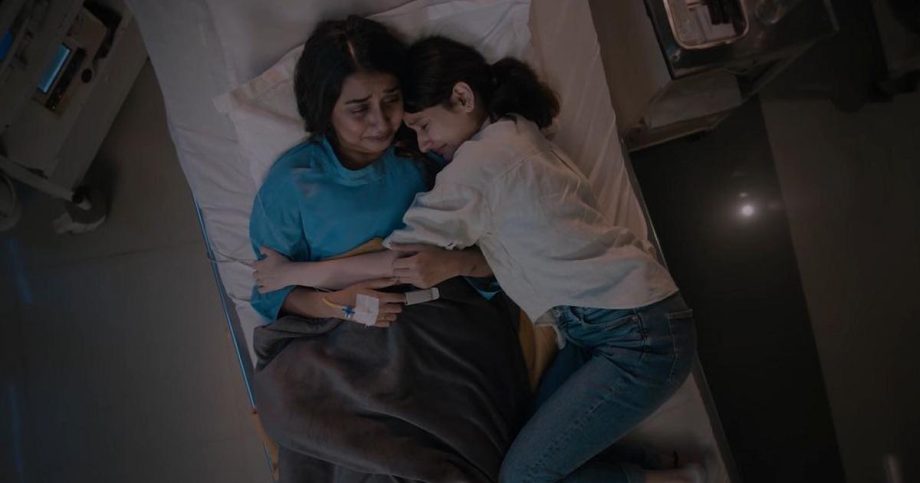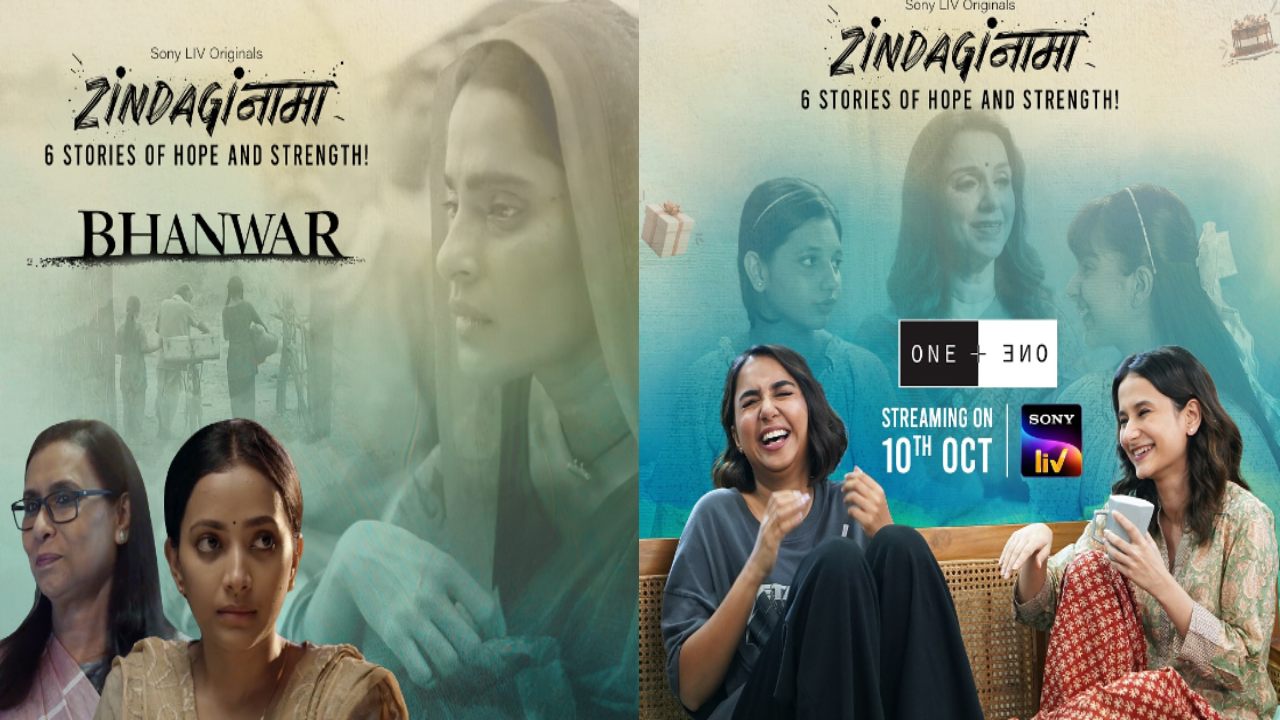Zindaginama on Sony LIV
Cast: Lilette Dubey, Prajakta Koli, Yashaswini Dayama, Priya Bapat, Shweta Basu Prasad, Dayahshankar Pandey & more
Created by: Applause Entertainment, An AntiMatter production, Conceptualised by Mpower
The anthology series Zindaginama on Sony LIV offers a compelling exploration of mental health issues often left unspoken in popular media, and having had the chance to watch two of the six now available – Bhanwar and One Plus One, here’s what we thought about the same.
Firstly, Bhanwar delves deep into the haunting experience of a young woman who, as a child, witnessed her mother’s suicide, leading to a long-term struggle with PTSD (post-traumatic stress disorder). The story is a profound reflection on how early traumas can linger and affect individuals well into adulthood. Shweta Basu Prasad portrays the grown-up daughter, while Priya Bapat plays the mother in the flashbacks, and both deliver emotionally charged performances that effectively convey the lasting impact of trauma. The strength of Bhanwar lies in its sensitive depiction of PTSD, not only through the protagonist’s flashbacks and mental distress but also in how it examines the difficulty of healing from such deep wounds.

The mother-daughter dynamic is central to the story’s emotional core which eventually turns into a father-daughter story. Bapat brings nuance to the role of the mother in the flashbacks, creating a heartbreaking portrait of someone who quietly suffered before succumbing to her mental health struggles. The story thoughtfully addresses the idea that trauma, especially when tied to a loved one’s tragic end, can manifest in many ways over time, subtly affecting a person’s ability to connect with others or trust their own emotions. As an audience, we feel the daughter’s helplessness, caught in the cycle of reliving her past and trying to move forward.

On the other hand, One Plus One offers a different yet equally impactful take on mental health, focusing on anorexia—a disorder that is often misunderstood or trivialized in media. Prajakta Koli, who plays the affected Mira gives an understated yet poignant performance as a woman battling anorexia, depicting the mental rigidity and obsessive control over her body and food intake that often comes with the disorder. Her relationship with her sister, played by Yashaswini Dayama, forms the heart of this story, as the bond between the two is tested and ultimately strengthened in their fight against anorexia.
The power of One Plus One lies in its representation of the eating disorder not as a superficial struggle about weight, but as a much deeper, internal battle for control and self-worth. The story smartly avoids turning anorexia into a spectacle, instead showing how it quietly devastates the person and those around them. Dayama’s portrayal of the worried sister, trying to help but not knowing how, adds a layer of emotional complexity to the narrative. The film also features Lilette Dubey as their mother, who plays a crucial role in offering support while also learning to navigate this challenging situation. Dubey’s character is essential, showing how families often struggle to grasp the severity of eating disorders and the need for compassionate intervention.

Both stories share a quiet, respectful approach to these delicate subjects, treating mental health with a level of care and realism that is often missing in mainstream portrayals. However, while Bhanwar and One Plus One succeed in introducing these lesser-known facets of mental health, the short-film format does limit their impact to some extent. Each story in Zindaginama runs for around 35-40 minutes, which leaves little time to explore the depths of these issues as fully as they deserve. Though the narratives are engaging, the pacing feels rushed at times, particularly in the resolution of the conflicts. The endings can seem too neatly wrapped up for such complex issues, which could have benefited from more exploration and slower development.
Furthermore, while the stories handle mental health with grace, the base-level approach sometimes prevents them from fully diving into the deeper psychological undercurrents of PTSD and anorexia. The dialogue occasionally feels expository, telling the audience how to feel instead of letting the emotions naturally unfold. This is particularly noticeable in One Plus One, where the portrayal of the sisters’ relationship could have been even more impactful with a slower buildup, allowing the audience to experience the gradual erosion caused by the disorder.
Despite these minor shortcomings, Bhanwar and One Plus One are commendable efforts to bring attention to underrepresented mental health issues. Their thoughtful storytelling, combined with strong performances from the cast, ensures that these stories will resonate with viewers, particularly those who have experienced similar struggles. Ultimately, the anthology serves as a reminder that mental health is multifaceted, and understanding it requires empathy, patience, and continued conversation. Zindaginama may not be perfect in its execution, but it successfully opens the door to discussions that are vital in today’s world.


